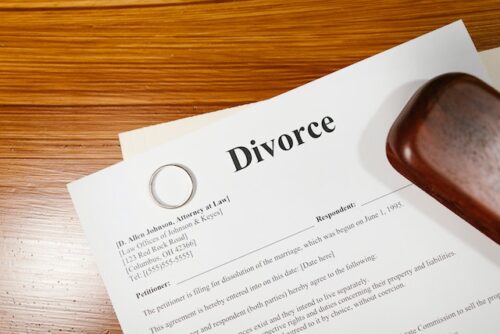
Divorce can be one of the most awful and exhausting processes a person lives through. Naturally, you’ll want your divorce to go as smoothly as feasible, if you end up having to get a divorce. Unfortunately, sometimes it’s just not possible to get an amicable divorce. Sometimes, it becomes highly difficult if not impossible to agree on core topics like property division, and a spouse could even refuse to sign divorce papers.
Despite this, you’ll likely thought long and hard about the divorce before getting the process underway. Read on to learn what options New Jersey law gives you, and then if you find yourself navigating divorce, call a Sussex County divorce and separation attorney right away.
Why Won’t Your Spouse Sign?
As ready as you may feel now that you’ve taken this important step toward your new life, remember that often, people are uncomfortable about a requested divorce. It’s relatively uncommon for the other party in a marriage to just sign divorce papers without taking time to carefully consider their position with regard to bargaining.
It is in your best interest to find out why your current spouse is hesitating. Knowing whether your current spouse is acting in good or bad faith can change the structure of your negotiation entirely.
There can be a world of difference for the same silence. If your spouse genuinely thinks the marriage isn’t irretrievably broken, unless previous negative experience has shown you this won’t end up being helpful, you should consider asking them why think that. You may even find that you don’t want a divorce after speaking earnestly about the matter with your current spouse. Or your current spouse may want to divorce and simply lacks the brain space for it due to other personal concerns. In the worst case, your spouse may just be using what remains of the narrative as leverage to be used against you in anger.
Is a Divorce Possible When One Party Disagrees?
On the other hand, you can’t simply ambush your current spouse with the divorce papers. That would also be acting in bad faith, which courts would surely take note of. So your current spouse will need to be aware of the divorce, but if they are aware and are simply refusing to sign, their refusal is not sufficient reason to squash what future plans you have been working on. In some cases, New Jersey law can even compel someone to work with their spouse on the divorce. Judges don’t typically like to see one-sided proceedings, so the court will try to locate the former spouse if they’ve been refusing to even answer the divorce notice.
What Will Happen if My Spouse Doesn’t Sign or Respond to Divorce Papers?
There are a couple possible outcomes. What may happen is that the divorce becomes a long and drawn-out one, for which an experienced attorney would be the biggest help you can get. A contested divorce is what happens when the former spouses cannot agree on basic matters like child support or custody, as compared to an uncontested divorce where both former partners do agree. In an uncontested divorce, you claim before the court that the marriage has broken simply as a result of incompatibility.
Such a divorce can also be called a no-fault divorce. If your spouse is refusing to sign, you may not be able to cooperate to the degree needed for an uncontested divorce. Sometimes, however, you can get a no-fault divorce without your spouse’s cooperation. If your spouse refuses to cooperate to the degree of not replying to your divorce notice for 20 days or more, states will allow you to call your divorce uncontested. You will discuss matters like child custody with the judge instead.
